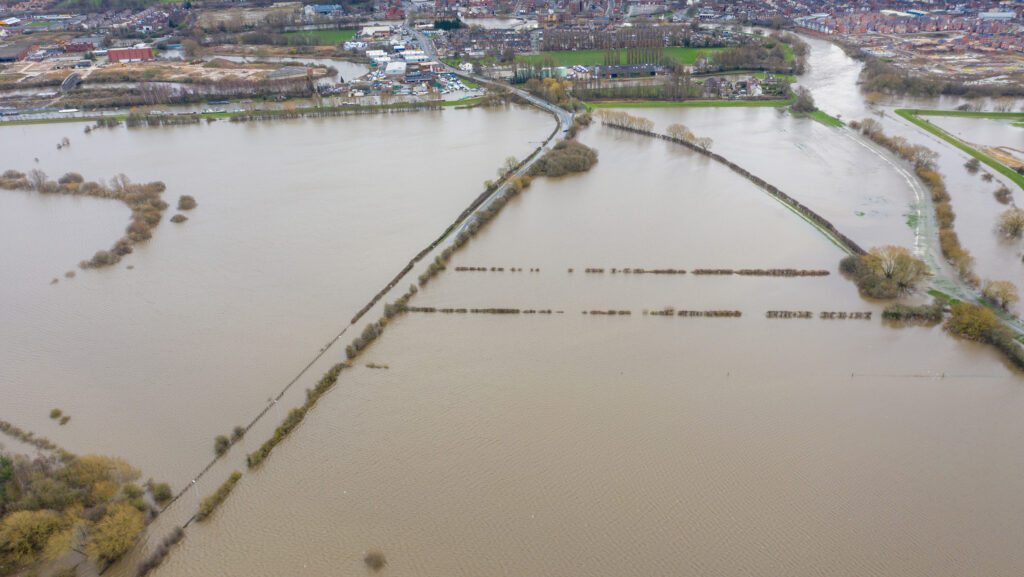Opinion: Proper funding needed to hit climate targets
 © Adobe Stock
© Adobe Stock All farmers are now on the front line of climate change, as we’ve seen some of the wettest winter weather on record and one of the coolest summers since 2015.
With further recent weather warnings and a month’s worth of rain falling in one day, it looks like these “freak” weather events are becoming the norm.
See also: ‘Biblical’ rainfall washes away newly drilled crops
About the author

Oli Lee is vice-chairman of the NFU Livestock board and runs a lowland grassland farm in the Welland valley in Leicestershire.
As a Leicestershire livestock farmer, I believe it is important that we continue to take collective action on our journey towards climate-friendly farming – not least because it has been legislated for by government.
It is also important that we all focus on our productivity, to ensure our businesses remain adaptable to changing weather patterns.
How we get there is a challenging and complicated process. We cannot do it alone.
Our sector has the expertise and resources to focus on producing food alongside enhancing the environment and biodiversity of our farms, but we need investment to do so.
This is why I found myself on a mixed farm in Norfolk recently with a member of the UK’s Climate Change Committee (CCC) and two of their staff.
The meeting was organised by the NFU to ensure that farming’s voice is heard as the CCC works on its seventh carbon budget, which seeks to advise the government on how emission reductions will be shared out across the economy.
Feeling a little in awe after finding out that the CCC member walking alongside me near the Norfolk Broads also consults on net zero transitions for whole countries, we got to the meat of the subject.
Seeing how the farm’s suckler beef herd grazed next to a hugely biodiverse area, discussions included the sustainable nature of British livestock farming and clearly making our sector visible as a sink for greenhouse gases, rather than just a source.
We also spoke about the disconnect between climate policy and trade policy, and the value of not offshoring our food security.
We also considered the barriers to farmers engaging with the climate change agenda.
These include the challenges of using carbon calculators, improving the consistency of data inputs, and the provision of other management information that can help drive genetic improvements.
Everything has a cost, including the transition to net zero, and it is vital that the CCC and the government recognise that.
I am confident that our sector has the ambition to meet the government’s net zero targets.
The NFU Livestock board has developed a sector resilience plan that sets out how climate resilience makes good business sense.
However, we need to have profitable businesses if we are to invest in and use data to inform management decisions on farm. We need investment from government to make these changes.
The best way for the government to treat British farming as an ally for its climate targets is by using the autumn Budget to announce an increase in the multi-year agriculture budget to £5.6bn a year.
Modelling from the independent Andersons Centre suggests a budget increase is needed to effectively support the delivery of the government’s own statutory environmental ambitions and a balanced agricultural policy.
This would allow for additional actions under the Sustainable Farming Incentive specifically targeting net zero, and mean that businesses are able to invest in the latest infrastructure and technology.
To coin a phrase which still rings true, we can’t go green if we’re in the red.
